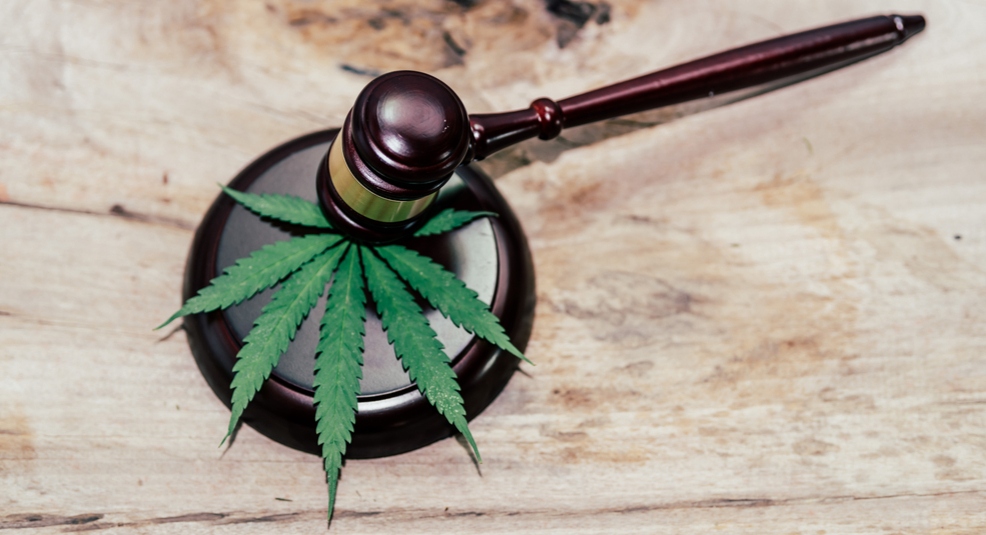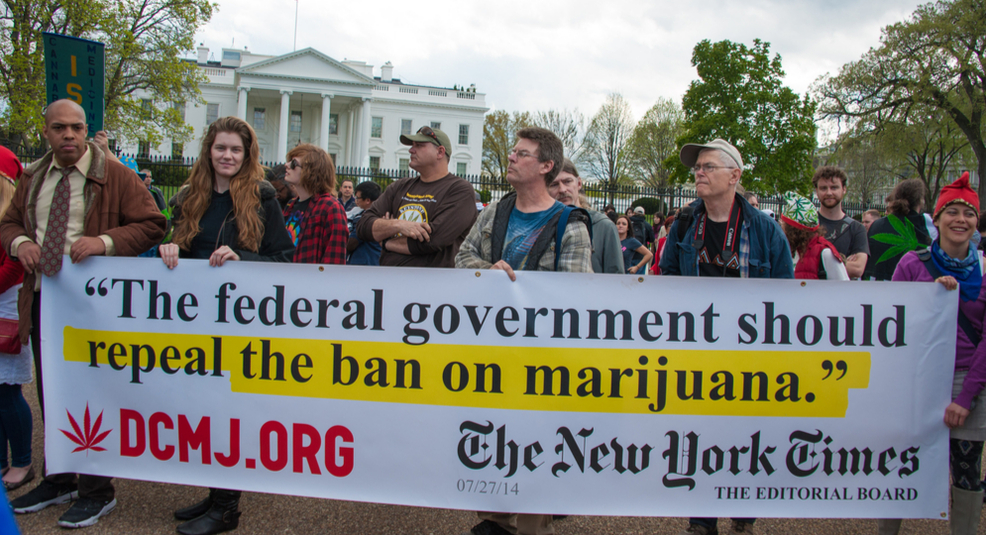Laws, Regulations & Activism
Activism & Regulation Today
In an effort to keep up with ever-changing laws and legislation, we will update this section accordingly.
In 2018 the Farm Bill was signed into law, removing hemp from the list of Schedule I drugs and allowing farmers to legally grow industrial hemp. States and tribes can submit plans to grow hemp and take advantage of US Department of Agriculture (USDA) farm programs, such as the Farm Service Agency (FSA), Natural Resources Conservation Service (NRCS), and Risk Management Agency (RMA). Hemp producers are also eligible for crop insurance, farm loans, conservation, and safety net programs. Though this was long overdue, it is certainly a promising step forward.

Activism
For decades, organizations like Erowid and Shroomery have been committed to educating the public on research studies and providing trustworthy information. It is because of the work they do, as well as many other organizations and nonprofits, that cities are starting to not only decriminalize psychedelic substances, with psilocybin often at the forefront, but are also finding ways to make them more accessible. For example, in Oakland, CA., instead of creating a for-profit market, they implemented a Grow, Gather, and Gift framework that encourages people to take the cultivation and free distribution of entheogenic plants and fungi into their own hands. This measure was put forth by Decriminalize Nature— an educational campaign created by Entheogenic Research Integration and Education (ERIE). Their purpose is to “decriminalize entheogenic plants, restore our root connection to nature, and improve human health and well-being.”

Decriminalize Nature
Since 2018, Decriminalize Nature has led independent chapters in Chicago, Ann Arbor, Salt Lake City, Dallas, and several other cities in the US and Canada. As of now, there are nearly 100 cities across the country that are aiming to set new legislation regarding possession, use, and cultivation of entheogens, with Decriminalize Nature often on the front lines. In an effort to change the negative narrative that surrounds these plants and fungi, Decriminalize Nature wants to focus on individual communities and make change at the local levels. This is different from models we have seen in the past, particularly with cannabis legalization, which lobbied to commercialize first and educate later. Current decriminalization proposals call for categorizing entheogens at the lowest criminal priority, meaning they could still be considered illegal, but police will be required to pursue all other crimes before prosecution for growing or possessing entheogenic plants and fungi. All prosecutions for crimes involving these substances must be deferred, as well as implementation of criminal offense expungement programs. After Decriminalize Nature’s measure passed in Oakland, other cities, like Denver, Santa Cruz, DC, Somerville, and Cambridge, have followed suit. New Mexico decriminalized growing psilocybin mushrooms in 2005; and in 2020 Oregon became the first state to legalize them with a therapeutic structure for psychotherapy to follow. Legislation is also being proposed in New York, New Jersey, Arizona, and North Dakota, with California possibly being the first state to decriminalize entheogenic plants and fungi statewide.

2024 & Beyond
Two historic measures have been passed in Oregon: The Psilocybin Service Initiative (Measure 109) and the Drug Addiction Treatment and Recovery Act (Measure 110). Under Measure 109 (PSI), supervised psilocybin-assisted therapy programs in a controlled setting are legalized. There is also a regulated system for production and distribution within the state monitored by the Oregon Psilocybin Advisory Board and the Oregon Health Authority. Under Measure 110 (DATRA), use and possession of a particular amount of all controlled substances are decriminalized. People may still have to pay a fine, but they will not be arrested if caught possessing a small amount of a substance. Connecticut and Florida have also recently proposed bills, both modeled after Oregon’s public health model.
Organizations like MAPS, Heffter Research Institute, The Beckley Foundation and Usona Institute are dedicated to advancing studies and conducting clinical research to further understand the therapeutic effects of psilocybin. MAPS’s focus is on developing progressive medical, legal, and cultural paradigms for those who benefit from safe and mindful uses of marijuana and psychedelics. MAPS is also a leading research organization that studies MDMA, LSD, and ayahuasca-assisted therapy, as well as ibogaine therapy for drug addiction and medicinal marijuana. At Heffter Research Institute, co-founded by Dennis McKenna in 1993, their research centers around psilocybin treatment for cancer-related distress and substance addiction, the relationship between the psychedelic experience and spirituality, and the effects psychedelics have on the brain. The Beckley Foundation’s missions stem into global drug policy reform, collaborating with scientific and political institutions to initiate research into psychedelic substances, and developing reform into global policy initiatives and clinical research development. Usona Institute, while also studying the brain, focuses more so on treating mental conditions, such as depression and major depressive disorder (MDD).

Activism and regulation have come a long way since the Controlled Substances Act was passed in 1971. Clinical trials and modern research have also made strides in just the past few years. Without activist organizations, nonprofits, and their grassroots efforts, we would still be stuck in the past. Though we have come a tremendous way, broken down barriers, and have reconstructed the narrative surrounding these substances, there is still much work to be done before psilocybin mushrooms and other psychedelics are decriminalized nationwide and rescheduled concerning their perceived medical benefit, but we can expect to see a large amount of progress in the coming years.